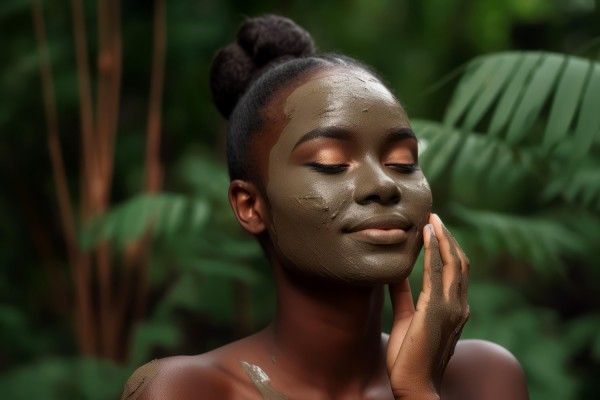 (Photo : Vecteezy/Yulia Ryabokon)
(Photo : Vecteezy/Yulia Ryabokon)
The skincare industry has seen a massive boom over the past years, thanks to the inclusion of potent beauty ingredients in products that prove effective for numerous skin types and issues, often even becoming essential favorites.
Isn't it fascinating how many of the popular ingredients found in today's skincare products have their roots in beauty rituals from different countries around the world? Originating from ancient civilizations, these discoveries have been passed down through generations and are now widely embraced for their ability to tackle skin hydration, combat acne, soothe redness, and address a spectrum of other skin concerns.
Here are a few ingredients derived from beauty practices originating in various countries across the globe.
1. Shea Butter - West Africa
Shea butter, sourced from the nut of the African shea tree, frequently finds its way into shower gels, lotions, creams, and body butters. Its origins date back to Cleopatra's Egypt in West Africa, having often been placed in jars and used for cosmetic purposes like shea butter massages for a soft skin.
Aveeno highlights numerous benefits of shea butter for the skin. Rich in diverse fatty acids, it enhances skin moisture and fortifies the skin's natural protective barrier.
A study published in the Journal of Agricultural and Food Chemistry also found that shea butter contains various antioxidants like vitamins A and E, known for its antioxidant properties.
Furthermore, research published in the Journal of Oleo Science underscored shea butter's anti-inflammatory properties, making it an ideal remedy to calm and nourish irritated skin.
2. Coconut Oil - India
Coconut oil is as a common ingredient in hair products like shampoo and conditioner, yet its versatility extends to skincare as well. Its origins lie in beauty customs from India, where mothers traditionally applied coconut oil to their daughters' hair twice a week, as per Aavrani, a skincare brand that draws inspiration from ancient rituals.
Numerous research uncovered coconut oil's benefits, including helping treat symptoms of skin disorders by moisturizing and soothing the skin.
According to a study, coconut oil contains fatty acids, notably lauric acid, renowned for improving hair health. Its application aids in repairing damaged hair, managing frizz, safeguarding strands from heat-induced damage, and effectively combating dandruff.
3. Mugwort - South Korea
When it comes to skincare, South Korea is a frontrunner. Many trending ingredients this year originated from the country -- think snail mucin and mugwort.
Mugwort is used as a primary ingredient in some skincare products like facial masks and essences. Traditionally recognized for various medicinal uses, this herb was also utilized by individuals during the Joseon Dynasty for oral and body cleansing by rinsing with mugwort-infused water.
Research found that mugwort extracts possess beneficial antioxidants that combat bacteria and fungi. These antibacterial components within the plant are thought to aid in reducing inflammation in the skin and clearing acne breakouts.
4. Kiwi Seed Oil - New Zealand
Kiwi seeds sourced from New Zealand's kiwi fruits have been widely embraced in skincare for their potent anti-aging properties. They are known to reduce wrinkles and fine lines owing to their antioxidants. Consequently, kiwi seed oil has become a prevalent skincare ingredient.
As per Garden of Wisdom, a beauty products supplier, kiwi seed oil excels in retaining skin moisture. Moreover, its richness in antioxidants like vitamins E and A shields the skin from oxidative stress. With a high content of alpha-linolenic acid, it naturally illuminates the skin, boasts anti-inflammatory traits, and swiftly permeates into the skin upon application.
5. Rose Water - Turkey
For millennia, Turkey has embraced purified rose water in its beauty customs. With a heritage steeped in tradition, the country has long incorporated rose-based elements, particularly rose water, into skincare and beauty regimens.
Rose water is often applied to calm irritated skin, addressing issues like redness, puffiness, and itchiness. This makes it a good ingredient for sensitive skin conditions such as eczema or rosacea, according to a study published in Journal of Inflammation.
6. Dead Sea Mud - Middle East
Yes, even mud from the sea has made its way into beauty rituals and skincare routines. Dead Sea mud is a distinctive ingredient sourced from the Dead Sea, nestled between Jordan, the Palestinian West Bank, and Israel.
This mud, utilized in mud baths and skincare products, contains a blend of minerals like magnesium, sodium, and potassium owing to Dead Sea's exceptionally low sea level and mountainous surroundings, as per Healthline.
Dead Sea mud is known for its ability to address impurities like dead skin and acne. It has also been studied for its effectiveness in treating psoriasis thanks to its high salt concentration.

